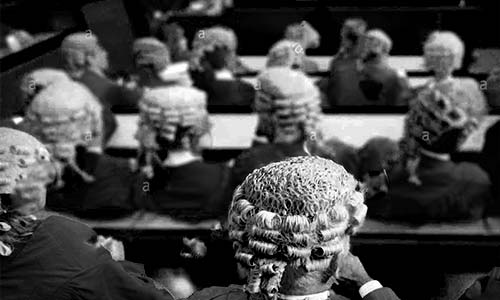By Kene Obiezu
Between 22nd and 29th October 2021, Nigerian lawyers under the auspices of the Nigerian Bar Association will converge on Port Harcourt, Rivers State, for its anticipated Annual General Conference.
This year`s theme, “Taking the Lead”, is apt because more than ever, Nigeria stands in sore need of good leadership.
In 2015, no sooner had Mr. Muhammadu Buhari assumed office after victory at polls in which Nigerians resoundingly rejected the PDP than he had Nigerian lawyers in his crosshairs.
Proceeding rather sweepingly and misguidedly, he called out Nigerian lawyers for their roles in the many problems plaguing the country especially corruption. It was a harbinger of things to come. In 2016, in the dead of the night, a couple of Nigerian judges were roused from their sleep and their homes turned upside down by men of the Department of State Services. Till this day, no one from the DSS or from the executive has been able to successfully deny that the raid was nothing other than a sacrilegious attack on the Nigerian judiciary. In fact, in 2019, when Mr. Walter Onnoghen was forced out as Chief Justice of Nigeria by the kangaroo kinetics of the Code of Conduct Tribunal and the presidency, it became apparent that the attack on lawyers and the raid on judges was all part of a poorly orchestrated campaign to rein in the judiciary.
In 2015, as Mr. Buhari sought to unseat an incumbent president for the first time in the history of Nigeria, he was all over the place with his propagandists, waving an anti-corruption manifesto at Nigerians. Nigerians fell for the gimmick because under Mr. Goodluck Jonathan, corruption had become a policy of state.
Like a cancerous tumor, corruption had metastasized, infecting every part of the country and dealing a deadly blow on Nigerians, and destruction to the country`s ethics and public property. The leprous fingerprints of corruption were in the failing health care available to children, in the dilapidated classrooms and impoverished teachers in public schools and largely in the swift descent of families down the steep slopes of poverty. In the sharp corners some members of the judiciary are favoured, and the lethargy in the National Assembly, corruption had left conspicuous marks.
Corruption had caught on the fabric of the country like an indelible stain, portraying the country on the international stage as dirty and directionless. Because things were awful, Mr. Buhari was an easy sell. Today, the love story has soured into a horror story.
There is in Nigeria as in every other country a court of public opinion. There the pulse of everyday Nigerians is felt, and their views aggregated. In the court of public opinion, people freely share the experiences their expressions betray.
In Nigeria, the dominant narrative is that political office holders violate the public till and then get lawyers to extricate them from judicial proceedings when they are put on trial. In Nigeria, a lawyer to a ‘thief’ is also a ‘thief.’
To its credit, the Nigerian Bar Association, the umbrella body of lawyers in Nigeria has in keeping with its motto which is “promoting the rule of law,” remained an unwavering defender of the rule of law.
Whenever the Association has been able to put its internal wrangling aside, it has proved an unforgiving thorn on the flesh of Nigerian public officers with dictatorial inclinations. Lawyers by their training and experience most times find themselves in the trenches with the oppressed. From those trenches have come an instinct that flinches at the faintest expression of oppression.
Now, as the country stands on the brink, assailed enemies on all sides, Nigerian lawyers must more than ever assume their responsibilities as defenders of the country.
The law of which they are bastions and the temples of justice where they are ministers have always proven sure battlements against the gale injustice and oppression.
Kene Obiezu, [email protected]





